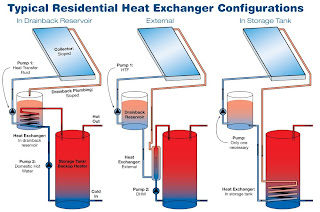While many people associate solar power
with electricity generation, not everyone knows it can be used to heat water.
Solar hot water is called solar thermal, and is an energy efficient way to meet
the hot water demand of your household. Solar thermal can also be used to
provide cost-effective heating solutions for pools. Get the facts below to
learn more about the advantages of solar thermal.
Solar thermal is cost-effective
A complete solar energy system for
electricity generation may be out of your price range, but solar thermal
systems are very affordable. Using solar energy to heat your water is a
cost-effective way to begin utilizing natural energy to save money on your
utility bills. Whether you are used to using a gas or an electric water heater,
solar thermal will provide significant savings over both these traditional
water heating methods.
Solar thermal is more efficient
Converting the sun’s energy to electricity
takes a lot more work than simply absorbing the sun’s heat for use. Solar
thermal is around 3 times more efficient than the average solar panel which
converts sunlight for electricity. Hot water is also much more efficient for
storing energy than the electrical storage which is used by solar panels.
Solar thermal is a good investment
Considering their cheaper price tag and higher
efficiency, solar thermal systems can be a much better investment financially.
Without the high cost of a solar electricity system, solar thermal systems have
a much shorter payback period.
If you’re interested in using solar energy
in your home, solar thermal is an affordable way to do so. Reduce energy costs
by meeting your home’s hot water demand using the sun’s energy instead of your
utility provider’s. Smith Sustainable Design installs solar thermal systems for
homes as well as businesses. If you want to learn more about solar thermal for
your home, feel free to contact us.







